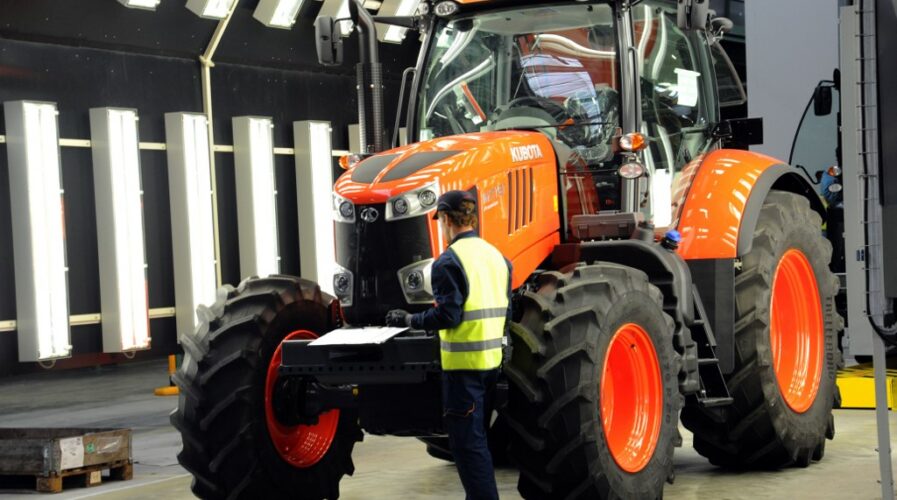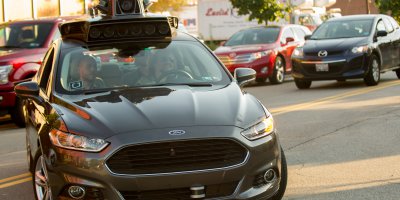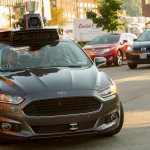
Kubota works with Nvidia towards autonomous tractors to deal with Japan’s farm labor shortage . Source: AFP
Japan agriculture crunch — can AI-powered autonomous tractors help?
- Can Japan’s dire labor shortage in the agriculture sector be revitalized with autonomous tractors and other precision farming tech?
Japan’s farming market is possibly undergoing its twilight years with a significantly greying community, and that’s why smart, autonomous tractors being developed by machine maker Kubota Tractor Corporation could hold commercial appeal.
According to Japan’s Ministry of Agriculture, Forestry, and Fishing, the number of Japanese engaged primarily in farming dropped to 1.7 million in 2014 from 1.86 million in 2011. About 515,000 farmers were 75 years or older in 2014. By comparison, only 83,000 were 39 years old or younger — and that number was down by 7,000 from just three years earlier, reports USA Today.
To make matters more pressing, Japan’s population is shrinking by a quarter of a million people a year, and the number of births in 2014 was the lowest since record-keeping began in 1899, according to the Ministry of Health, Labor and Welfare.
With a dwindling population and most young people seeking opportunities in the city rather than in agriculture, it falls to technology like fruit-picking robots and sensor-mounted drones to help enhance the efficiency of Japan’s produce chain with precision planting techniques.
The precision planting market increases the focus on farm efficiency and crop productivity by transforming traditional farming activities to be more efficient and predictable, lowering the manual and physical expectations on the farmers themselves.
The market is estimated to be worth US$3.6 billion this year and projected to reach US$4.6 billion by 2025, and is one of the reasons why the new Kubota concept, the X Tractor will be equipped with sophisticated autonomous technology from US chipmaker Nvidia.
The new tractors, whose concepts were launched earlier this year in Japan, will be equipped with Nvidia graphics processing units (GPUs) and artificial intelligence (AI), coupled with cameras to instantly process collected data.
Kubota is calling this X Tractor prototype its “dream tractor“, exactly fifty years after the company exhibited its first concept “dream tractor” at the Japan World Exposition, Osaka 1970. The original concept had advanced operability for 1970, but nothing like the fully electric, 100% AI-driven X Tractor unveiled this year.
Nvidia’s AI platforms have actually been extensively trialed to pilot autonomous vehicles over the years, including by Toyota and China’s Baidu. Recently acquired by Arm, this is the chip-making giant’s first known foray into the world of smart agricultural vehicles.
Kubota initially launched its Agrirobo line of tractors in 2017, which ran using radar to make sense of surroundings, but those machines required human supervision and did not utilize AI. Besides being navigated by AI, the X Tractor records with high-tech cameras that can report back on weather data and crop growth rates, and its collected environmental data can be shared with other autonomous tractors to fully manage a fleet of tractors, without requiring additional manpower.
The futuristically-designed autonomous tractor is a four-wheeled crawler with an acute turning radius for omnidirectional navigation. The tractor can adapt its shape and height to maneuver on various surfaces, including wet paddy fields and uneven terrains.
The dire condition of Japan’s agrarian culture combined with the steadily aging society could herald the perfect use case for such a fully autonomous tractor, even being recognized by the governing ministry. “In today’s Japan, the aging of farmers has become an issue, and the overall population of the country is decreasing,” commented Susumu Hamamura, the parliamentary vice minister at the Ministry of Agriculture, Forestry, and Fisheries.
“Collaboration between agriculture and nonagricultural sectors, such as satellite technology, IoT (“internet of things,” internet connectivity with physical devices like autonomous tractors), and artificial intelligence has a key role to play in fostering agricultural innovation,” the minister told the Japan Times last year.
READ MORE
- Ethical AI: The renewed importance of safeguarding data and customer privacy in Generative AI applications
- How Japan balances AI-driven opportunities with cybersecurity needs
- Deploying SASE: Benchmarking your approach
- Insurance everywhere all at once: the digital transformation of the APAC insurance industry
- Google parent Alphabet eyes HubSpot: A potential acquisition shaping the future of CRM


